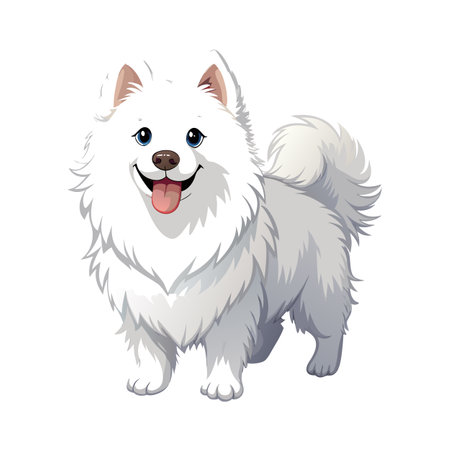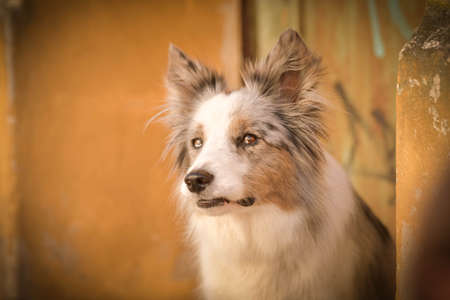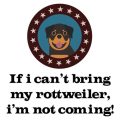Introduction: The Heart of British Canine Heritage
Across the rolling hills, bustling cities, and tranquil countryside of the United Kingdom, a tapestry of native dog breeds has thrived for centuries, becoming steadfast companions to generations of Britons. These beloved dogs—ranging from the stalwart working collies of the Highlands to the noble spaniels gracing stately homes—are more than just pets; they are living emblems of Britain’s spirit and resilience. The connection between people and their canine friends in the UK is deeply rooted in history, folklore, and daily life, reflecting values such as loyalty, community, and kindness. Whether by a fireside or out on the moors, these treasured breeds are woven into the nation’s cultural fabric, symbolising everything from homegrown pride to enduring friendship. As we explore these iconic dogs, we celebrate not only their distinctive traits but also the shared stories and gentle companionship that have helped shape British society.
From Countryside to Cobblestones: The Role of Dogs in British Life
From the rolling hills of Yorkshire to the bustling streets of London, native British dog breeds have woven themselves into the very fabric of daily life across the United Kingdom. These loyal companions have been far more than pets; they have served as steadfast partners, shaping communities and culture with their presence. Whether driving sheep across windswept moors or accompanying city dwellers on evening strolls, dogs have made an indelible mark on British society.
The Essential Roles of Native Breeds Throughout History
British dog breeds were originally shaped by necessity, bred for traits that reflected the needs of their people. On vast rural estates, collies and terriers were indispensable helpers to farmers and shepherds, herding livestock and keeping vermin at bay. Meanwhile, noble families relied on retrievers and spaniels for hunting and companionship during country pursuits. In towns and cities, smaller breeds like the Staffordshire Bull Terrier became beloved family members and loyal guardians.
A Legacy of Service: How Native Breeds Supported British Life
| Breed | Traditional Role | Modern Contribution |
|---|---|---|
| Border Collie | Sheep herding in rural areas | Agility competitions, therapy work |
| Labrador Retriever | Assisting hunters by retrieving game | Guide dogs, search & rescue |
| Staffordshire Bull Terrier | Family protector in urban homes | Loyal companion, canine sports |
| Cavalier King Charles Spaniel | Lapdog for royalty and aristocracy | Therapy dog, cherished pet |
A Continuing Bond: Dogs in Contemporary Britain
Today, these native breeds continue to enrich British life in both traditional and modern ways. From supporting mental health through therapy visits to bringing neighbours together in parks, their impact remains profound. In every corner of the UK, our canine friends remind us of the enduring bond between people and animals—a connection rooted in centuries of shared history, hard work, and heartfelt companionship.

3. Meet the Icons: Celebrating the Most Treasured British Dog Breeds
The United Kingdom’s cherished dog breeds are woven into the fabric of British life, each with its own compelling story and endearing qualities. These iconic companions not only bring joy to families but also hold a special place in local folklore, history, and daily routines. Here, we take a closer look at some of Britain’s most beloved native breeds—each a true character in its own right.
English Bulldog: The Stalwart Symbol
No breed embodies British resilience quite like the English Bulldog. With their unmistakable wrinkled faces and sturdy build, Bulldogs are often seen as a symbol of determination and stoicism. Despite their tough appearance, these dogs are famously gentle and affectionate, making them steadfast companions and loyal family members. Their slow-moving charm has even inspired countless British artists and writers.
Staffordshire Bull Terrier: The People’s Dog
Affectionately known as ‘Staffies’, the Staffordshire Bull Terrier is loved for its boundless energy and unwavering loyalty. Once nicknamed the “nanny dog,” Staffies have long been trusted playmates for children across British households. Their courage and loving nature shine through in countless tales from local communities—proof that behind their muscular frame lies a heart full of kindness.
Border Collie: The Quintessential Working Companion
The Border Collie’s intelligence is legendary on British farms, where they have herded sheep across windswept hills for generations. Highly trainable and always eager to please, Border Collies are celebrated for their sharp minds and tireless work ethic. Their agility trials at country shows remain a highlight of rural life, drawing crowds who marvel at their remarkable skills.
Other Noteworthy Native Breeds
| Breed | Key Traits | Cultural Significance |
|---|---|---|
| Scottish Terrier | Loyal, spirited, dignified | A national symbol of Scotland; popularised by famous owners such as Queen Victoria. |
| Cavalier King Charles Spaniel | Affectionate, graceful, sociable | Favoured by royalty; renowned for their gentle nature and regal bearing. |
| Welsh Corgi | Alert, outgoing, playful | The beloved companion of Her Majesty Queen Elizabeth II; steeped in Welsh folklore. |
A Living Legacy in Every Community
Each of these native breeds continues to enrich local traditions—from village fairs to city parks—reminding us that dogs are not just pets but treasured members of our communities. Their stories invite us to celebrate the unique bond between people and pups throughout Britain’s towns and countryside alike.
4. Anecdotes & Affection: Real Stories of Dogs and Their People
Across the rolling hills of Yorkshire, the bustling streets of London, and the rugged coastlines of Cornwall, British dog owners share a unique and enduring bond with their native breeds. These connections are woven into the very fabric of daily life, from countryside rambles with a loyal Border Collie to quiet evenings by the hearth with a dignified English Bulldog at one’s feet.
Heartfelt Vignettes from Across the UK
Owner |
Breed |
Testimonial |
|---|---|---|
| Maggie (Devon) | Cavalier King Charles Spaniel | “My Rosie is my constant companion—her gentle nature has brought comfort to our entire family. She seems to know when you need a cuddle and has made even rainy days brighter.” |
| Alfie (Yorkshire) | Border Collie | “Bramble is more than just a working dog; he’s a friend who never leaves my side on the farm. His energy keeps me going and his loyalty is second to none.” |
| Sophie (London) | Staffordshire Bull Terrier | “Despite their reputation, my Staffie, Ruby, is the gentlest soul. She’s adored in our neighbourhood for her playful spirit and loving cuddles.” |
| Iain (Edinburgh) | Scottish Terrier | “Hamish brings a bit of Scottish pride into our home. His stubborn streak makes us laugh, but it’s his unwavering affection that makes him family.” |
The Everyday Joys of Living with British Breeds
From early morning walks along misty fells to lazy Sunday afternoons in cosy living rooms, these dogs enrich their owners’ lives in countless ways. Many speak of newfound friendships at local parks, where fellow enthusiasts swap stories about muddy paws and wagging tails. Others highlight how their canine companions have helped them through difficult times, providing not just company but also emotional support.
A Community Built on Compassion
This tapestry of stories illustrates more than mere ownership—it reveals a community united by love for its native breeds. Whether through charity events supporting rescue organisations or simply offering a knowing smile to another dog walker on the high street, British dog lovers cherish their role as stewards of these national treasures. Their tales remind us that behind every iconic breed lies an everyday hero—both two- and four-legged—making the UK’s heritage richer with every shared adventure.
5. Preserving Heritage: Challenges and Conservation Efforts
The native dog breeds of the UK, from the regal English Setter to the sturdy Welsh Corgi, are cherished threads in Britain’s cultural tapestry. Yet these icons face mounting challenges in the modern era. Urbanisation, shifting lifestyles, and changing demands in pet ownership have led to a decline in some traditional breeds. The popularity of imported dogs and so-called “designer” crosses further threatens native lines, as does a narrowing gene pool and hereditary health issues.
Current Threats Facing Native Breeds
| Challenge | Description |
|---|---|
| Declining Numbers | Some breeds like the Skye Terrier and Otterhound now number fewer than 300 annual registrations in the UK. |
| Loss of Working Roles | Traditional roles—herding, hunting, guarding—are less common due to changes in rural life. |
| Health Concerns | Small populations increase the risk of inherited diseases due to limited breeding stock. |
The Role of Breeders, Charities, and Communities
In response to these threats, dedicated breeders and organisations such as The Kennel Club and The Dogs Trust have championed conservation efforts. Their work includes maintaining rigorous breed standards, promoting responsible ownership, and facilitating genetic testing to ensure healthy litters. Local communities often rally around their native breeds, organising events like agricultural shows or countryside fairs that celebrate these historic companions.
Conservation Efforts at a Glance
| Effort | Impact |
|---|---|
| Breed-Specific Rescue Groups | Provide sanctuary for at-risk dogs and promote adoption within the UK. |
| Education Campaigns | Raise public awareness about vulnerable breeds and encourage consideration when choosing a pet. |
| Gene Pool Management | Work with scientists to diversify breeding programmes and improve overall health. |
A Shared Responsibility for the Future
The preservation of British native dog breeds is more than nostalgia—it’s an act of stewardship for future generations. Through collective action and heartfelt commitment, breeders, charities, and communities keep alive not just bloodlines but a living heritage that speaks of Britain’s enduring bond with its dogs.
6. How to Support: Fostering and Advocating for Native Breeds
Britain’s native dog breeds are more than companions—they are living symbols of our heritage. If you feel inspired to play a part in preserving these cherished icons, there are many meaningful ways to get involved. Whether you have time, resources, or simply a love for dogs, your actions can make a real difference in protecting the future of British breeds.
Fostering and Adoption Opportunities
One of the most impactful ways to help is by fostering or adopting native breeds through reputable organisations. Many local rescue centres, breed-specific charities, and shelters work tirelessly to find loving homes for these dogs. Fostering not only provides temporary care but also helps dogs adjust and thrive while they wait for their forever families.
Key Organisations Supporting British Dog Breeds
| Organisation | Focus Breed(s) | Contact/Website |
|---|---|---|
| The Kennel Club | All native UK breeds | Visit Site |
| Battersea Dogs & Cats Home | Mixed & native breeds | Visit Site |
| The Old English Sheepdog Rescue | Old English Sheepdog | Visit Site |
| Cavalier King Charles Spaniel Rescue Trust | Cavalier King Charles Spaniel | Visit Site |
Advocacy and Community Involvement
You don’t need to adopt to make an impact. Raising awareness about vulnerable breeds is just as vital. Attend local dog shows, participate in community events, or host educational talks at schools and libraries to share the stories of Britain’s native dogs. Social media campaigns using hashtags like #BritishDogIcons or #SupportNativeBreeds can amplify your message nationwide.
Practical Ways You Can Help Locally
- Volunteer at breed rescue centres or animal shelters.
- Organise fundraising events to support veterinary care and rehoming efforts.
- Promote responsible breeding practices by supporting Kennel Club Assured Breeders.
- Encourage friends and family to choose adoption over buying from unverified sources.
Together, We Can Make a Difference
The legacy of Britain’s beloved dog breeds depends on people who care—like you. By fostering, advocating, and connecting with trusted local resources, each of us can help ensure that these treasured companions continue to grace our homes and countryside for generations to come.


